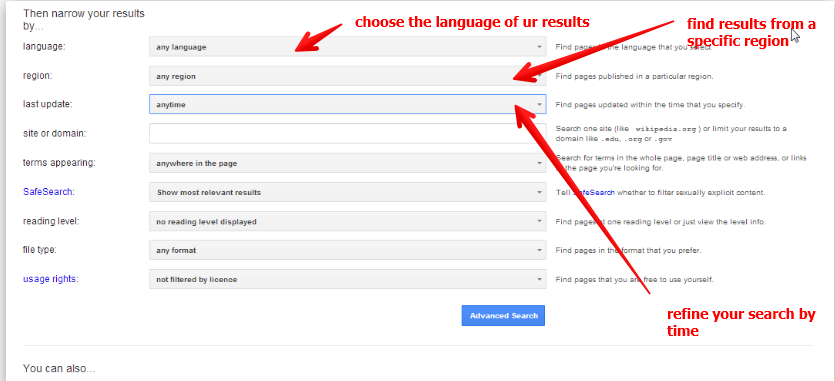
In the era of intensive searches to cater the needs of micro level information gathering enthusiasts, Google is offering intrinsic search options that enable us to search for niche centric contents. Though the popular search option is yet the general search window, micro level searches have begun to spread like wild fire. Hence, it becomes pertinent for any business to have a basic understanding about ‘Advanced Google Search’.
To access the Advanced Search Option, you need to go to the ‘Settings’ Tab at the bottom of the page in Google.com. It is important to understand, that the general search option from Google enables you to search for terms and its relative terms whereas Advanced Search is for concrete, fixed and specific terms and information. You will find various options that help you to find;
- Results for the ‘exact word or phrase’ (not adding anything more or less)
- Results where you ‘do not’ want specific words or phrases
- Permutation and Combination of words and phrases
Also Read: Understand Why Its Important For A Company To Blog
There are specific codes that these searches follow and you can find these codes that can help you in your micro searches. The searches do not stop with just these but can also be narrowed down to time, geo-locations, language, etc.
It is also possible to use advanced search in the general search tab with the help of some ‘search operators’. Remember, that these search operators need to be followed by “:” to be effective. Here are some common search operators that make use of ‘advanced search’ in the general search tab;
About allinanchor:
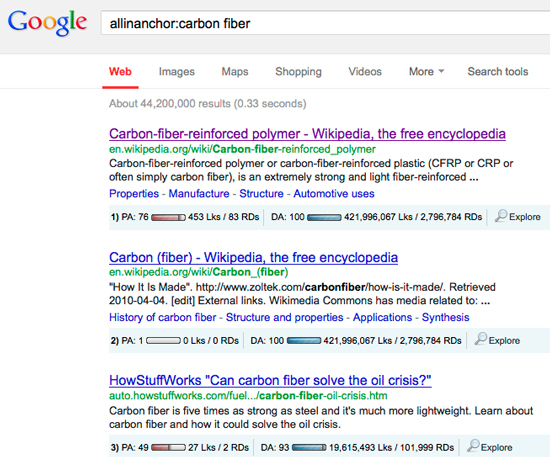
This enables to restrict search results containing the search term in the ‘anchor text’ of a web page. The ‘anchor text’ is the text that is hyperlinked to another web page or to another place on the same page. For e.g. in this URL http://www.pestcontrolplus.biz/432/vespa-velutina-synopsis the search term “Asian Hornets” is the anchor text as it is linked to another page of the same website.
About allinurl:

The results are restricted to the presence of search terms in the URL. For e.g. If you are searching for allinurl: Sydney restaurants the search will come up with URL links like http://www.urbanspoon.com/c/70/Sydney-restaurants.html. You would have noticed that words run together in a URL but when you are using this search operator, there is no need for words to run together, the search engine will still be able to identify them.
About allintitle:
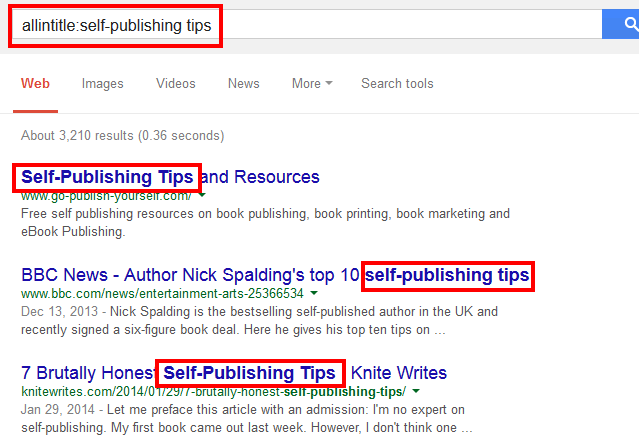
Search queries that start with this search operator will yield results that have web pages and documents that contain the specified search terms in the title. The title of the web page is the one that is displayed on the top of the web browser window. Each web page has only one title. For e.g. in the URL http://www.onlinesampleexams.com/ you can find the search term “Daily Current Affairs”.
About allintext:
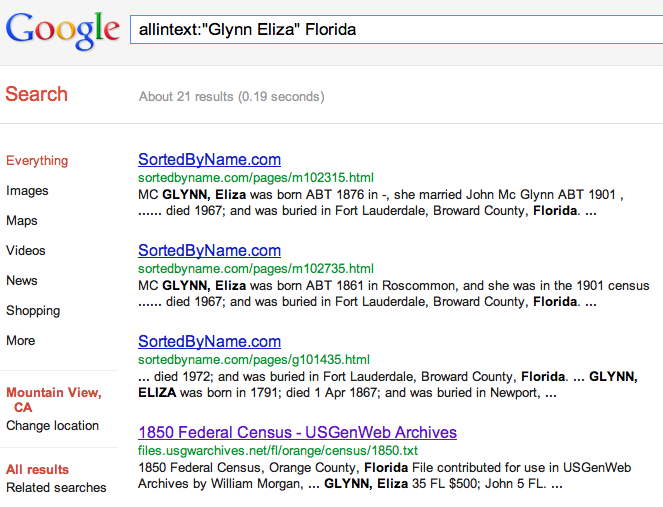
In this case, search results are restricted to the text found in a particular web page, meaning, it may not consider the title, URL, anchor texts, etc.
About author:
True to the name suggested, it refers only to the author of a web page. Mostly these searches lead to newsgroup articles. It is also possible to add prefixes to this search operator – for e.g. “children author:”, “business author:”, etc. After the “:” you can mention the name of author for whom you are searching.
About define:
Queries that start with define: are for definitions for the given search term. Definitions can be sought for words, acronyms and phrases.
About cache:
The search query cache:URL enables us to know the original cached version of the given URL and not the current version of it. This is used by website owners, optimization specialists and content creators to see content that is no longer live on the site. If you use the text-only link after the URL, you will be able to see the page without any images.
About related:
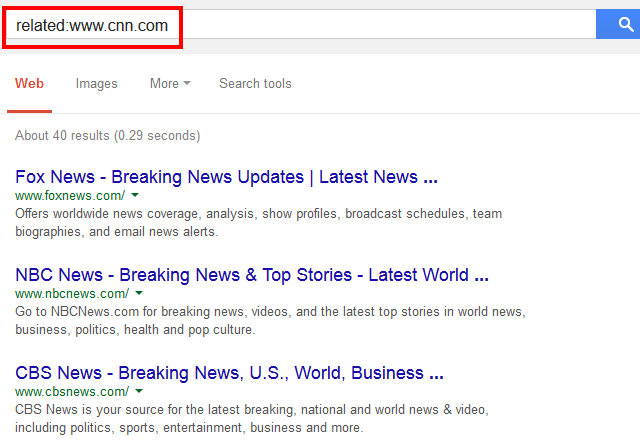
Search query given after related: enables you to find sites that are related to the query thus given. Apart from offering this information, Google search also provides you the choice of link triangulation where it provides information about pages that are related to the search term and pages that are linked to these related pages. Extremely useful in the case of micro level topic searches.
About site:

This is particularly useful while searching for search terms within the confines of a particular site. This is particularly helpful for finding friends in social media. All you need to do is type “site:twitter.com Friend Name”, where the search engine will search for the given name within the Twitter handle.
Searches today define what the web traffic really want and need. Advanced Search is the magnifying glass through which niche centric searches are made possible and made effective. Businesses, today need to gear up and understand the working ways of the search engines in order to understand the enigmatic search engine optimization process. Wait for more on google advanced search options and user behavior.
Latest posts by Digital SEO Blog (see all)
- Schema in SEO: Maximising SEO Potential - March 18, 2024
- Boost Your Site’s SEO with Clever Internal Linking - February 29, 2024
- Best Strategies to Mastering Mobile First Content for Digital Dominance - January 3, 2024


